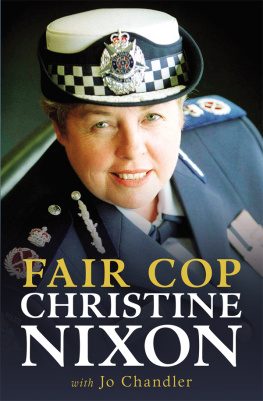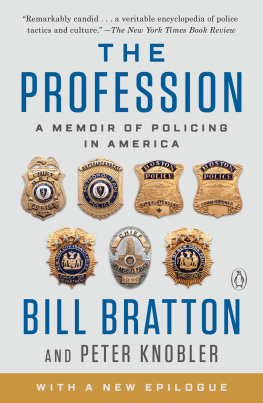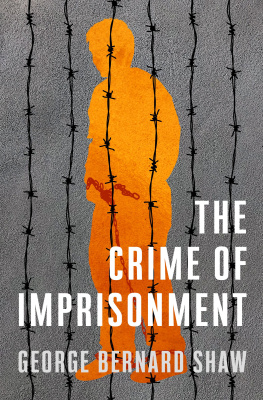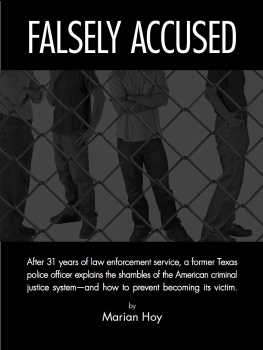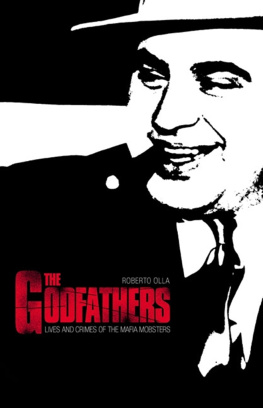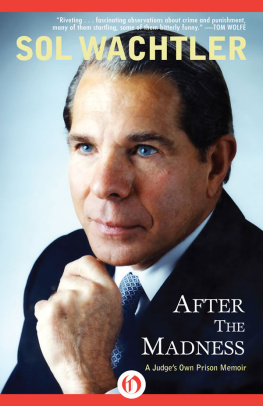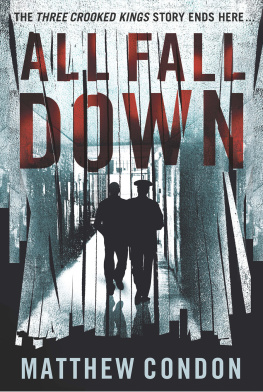
Threshold Editions
A Division of Simon & Schuster, Inc.
1230 Avenue of the Americas
New York, NY 10020
www.SimonandSchuster.com
Copyright 2015 by Bernard Kerik
All rights reserved, including the right to reproduce this book or portions thereof in any form whatsoever. For information, address Threshold Editions Subsidiary Rights Department,
1230 Avenue of the Americas, New York, NY 10020.
First Threshold Editions hardcover edition March 2015
THRESHOLD EDITIONS and colophon are trademarks of Simon & Schuster, Inc.
For information about special discounts for bulk purchases, please contact Simon & Schuster Special Sales at 1-866-506-1949 or business@simonandschuster.com.
The Simon & Schuster Speakers Bureau can bring authors to your live event. For more information or to book an event, contact the Simon & Schuster Speakers Bureau at
1-866-248-3049 or visit our website at www.simonspeakers.com.
Interior design by Robert E. Ettlin
Jacket photographs of badge and ID card provided by author
ISBN 978-1-4767-8370-3
ISBN 978-1-4767-8372-7 (ebook)
For Besim Aydin, whose life was cut short long
before his time; my wife, Hala, for being the mother
that every child wishes they had; and for Angelina,
who keeps me young and thinking.
CONTENTS

Introduction

My name is Bernard B. Kerik.
I was the fortieth commissioner of the New York City Police Department and was nominated by President George W. Bush for the cabinet position of secretary of the U.S. Department of Homeland Security.
Now I am former federal prison inmate #84888-054.
I served my time. Im back with my family. I still have good friends and supporters. Im speaking out for criminal justice reform, writing this book. But part of me still feels lost. Im not sure Ill ever feel whole again. The system beats you down in a way that remains, in a way you cant fully grasp and dont realize even when youre a part of it.
For more than thirty years, I served in various law enforcement positions. I was once a correction officer in a New Jersey county jail, later a beat cop in Times Square. In the late 1990s I ran the New York City Department of Correctiona jail system that includes Rikers Island, a massive penal colony with a history of mismanagement and violence. Then I ran the New York City Police Department at fifty-five thousand strong. These are two of the largest law enforcement institutions in the country.
In the line of duty Ive rescued people from burning buildings, been stabbed, been shot at. I saved my wounded partner in a gun battle. Ive survived a bomb plot in Iraq, been the target of death threats, seized tons of cocaine and millions of dollars from the Cali cartel. Ive brought cop killers, drug lords, and terrorists to justice.
I believed in public order. I believed in the public good. I felt pride standing against the dangerous, the lawless. But then I was convicted of violating the publics trust: tax fraud, false statements, lying to the White House. I was sentenced to four years in federal prison.
I am accountable and responsible for how my life has turned out thus farthe good, the bad, the rage, the heartache, the bitterness, the luck. Im far from an angel. My mistakes and scandals are many, as the press has widely publicized. But far greater is my professional service and love for this country.
Even after having served my time and paid a high price for my errors, as an ex-convict in many ways I remain disgraced. Ive lost some of my basic civil and constitutional rightsthe right to vote, hold public office, or obtain a law license. I cannot work in law enforcement for a government agency ever again. In many states, I can never work for the government or obtain a barbers license or become a physical therapist. Ive joined the growing demographic of Americans tagged for life as ex-convicts.
With this new book I aim to fill in the public and historical record, to tell my side of my story, taking readers on the tumultuous ride of the action-packed last thirteen years of my life, the paradox of a jailer being jailed, a prison builder becoming a prison reformer.
This is not just about me. Its about all the men and women on both sides whom Ive met and worked with during my career. Its about how shortsighted, inefficient, and cruel our criminal justice system is, how badly in need of reform. I didnt see the system this way when I was a warden, a cop, a commissioner. I could have. I should have. But you really cant, not fully, not unless you experience having your freedom taken from you, what its like to live on the other side of the bars.
They say that a conservative is a liberal whos been mugged, and a liberal is a conservative whos been indicted. So change is possible, and both sides agree: Its time for positive and substantial reform. This is my goal.
PART I

The Other Side of the Bars

Despair
The screams were bloodcurdling.
Por favor! Saqueme de aqui! Saqueme de aqui!
Please get me out of here!
The young Hispanic prisoners desperation echoed through the ninth floor of the Special Housing Unit, the SHU, of the Metropolitan Correctional Center in lower Manhattan. I listened from my solitary confinement cell just a few locked doors down the corridor from him. By that point, autumn of 2012, I had served more than two years of my four-year federal sentence for tax fraud and making false statements on a White House vetting application. I was serving my time at the federal prison in Cumberland, Maryland, and had just been transferred back to New York City, to the MCC, to serve as a witness in the perjury trial of Frank DiTommaso, who had gotten caught up in the legal troubles that had led me to prison.
The young Hispanic inmate must have been lying on the floor of his cell as he yelled, kicking the base of the solid steel door, each blow sounding like a thundering explosion.
Other prisoners began screaming and beating on their doors, too, yelling for the correction officers to do something for this desperate young man.
I lay on my bed shivering, listening to this kid scream bloody murder. His cries echoed the strains I felt inside, the desperation, the despair, even the fear of madness.
I looked around my own trap. My box, hole, or cage, as most of the prisoners called them. A twelve-by-eight-foot solid steel box, with a bed, a stainless-steel sink and toilet, and a small metal writing table and stool. On the door there was a four-by-twenty-four-inch window that gave me a limited view of the corridor, and a tiny barred window in the back that allowed me a small glimpse of the free world outside that wretched place.
I could see the steps of the U.S. Federal Courthouse, and a sign that read PEARL STREET .
The MCC was the U.S. Justice Departments New York City detention center. For the most part it held pretrial inmates for federal court in the Southern District of New York. On one side of the building was New York City Police Headquarters, where my commissioners office had been. On the other side of the building was the Manhattan House of Detention, once named in my honor for my achievements in the New York City Correction Department. Not even when it had my name did I really think about what it would be like to pass days and months and years in those boxes, to be on the other side of the treatment, to have your freedom and contact with the world taken in such a stark and complete way.


